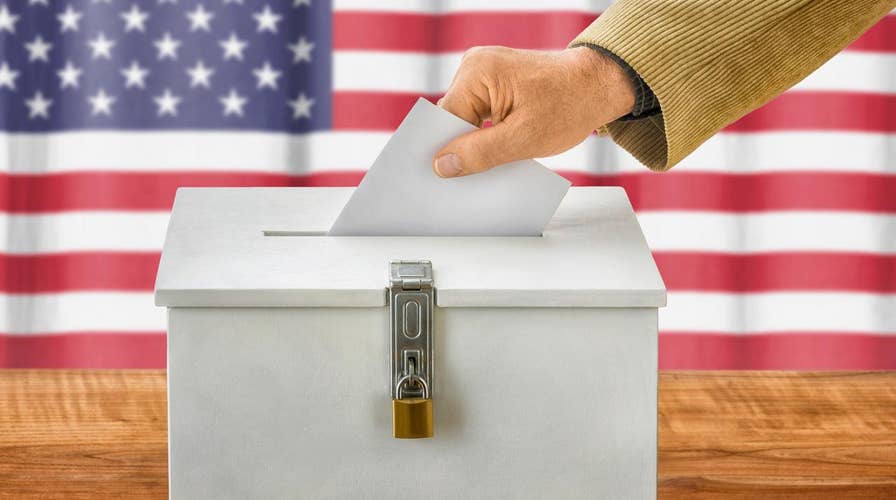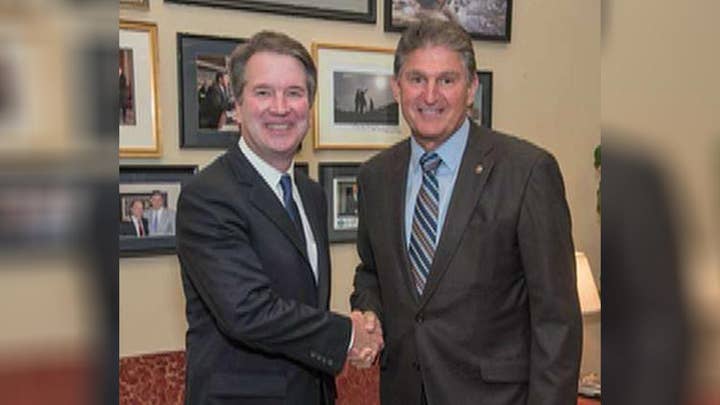Alabama, West Virginia seek to tighten abortion restrictions
A look at ballot initiatives in Alabama and West Virginia that look to tighten the grip on abortion restrictions
With President Trump’s nomination of Brett Kavanaugh to the U.S. Supreme Court, the abortion debate once again has returned to the national spotlight.
Nowhere is this more apparent than in Alabama and West Virginia – two states where voters will decide this fall on ballot measures asking whether to amend their constitutions to do away with any abortion protections.
If passed, the measures would not immediately impact state policy but would ensure their constitutions can’t be used to allow abortions, if the landmark 1973 Supreme Court decision in Roe v. Wade were to be overturned.
That's far from a sure thing. But the November ballot initiatives in these two socially conservative states are being closely watched as a bellwether for how other states might handle the abortion issue in that scenario.
“It’s the beginning of a trend,” Mary Ziegler, a professor at Florida State University College of Law and the author of "Rights to Privacy: How Americans Reimagined Roe v. Wade and Why We Have Forgotten," told Fox News. “If Roe v. Wade is eventually overturned, there will be some ugly state-by-state battles.”
In Alabama, state legislators approved the Republican-led measure for the ballot back in April.
“We want to make sure that at a state level, if Roe v. Wade is overturned, that the Alabama Constitution cannot be used as a mechanism by which to claim that there is a right to abortion,” said Republican Rep. Matt Fridy, who sponsored the bill.
According to the language on the measure, Alabama voters will be asked to either support or oppose the amendment to make it state policy to "recognize and support the sanctity of unborn life and the rights of unborn children, including the right to life" and to state that no provisions of the constitution provide a right to an abortion or require funding of abortions.
Alabama, which is one of 43 states that ban abortion beginning at a certain stage of pregnancy, has already seen a drastic drop in the number of abortions carried out in the last decade. The number fell 41 percent from 2005 to 2016, according to the state’s Center for Health Statistics.
If the measure passes, Alabama would be the third state to enshrine the “right to life” in its state constitution, following Missouri and Utah.
A similar measure, entitled the “No Constitutional Right to Abortion Amendment,” will appear on November’s ballot in West Virginia after more than two-thirds of the state’s House of Delegates voted for it in March.
While not as sweeping as Alabama’s measure, voters in West Virginia will be asked whether the following sentence should be added to the state constitution: “Nothing in this Constitution secures or protects a right to abortion or requires the funding of abortion.”
West Virginia is one of nine states to have laws prohibiting abortion that had been in place before Roe v. Wade and, if the Supreme Court ruling were overturned, abortion would be banned there.
In 1993, the West Virginia Supreme Court overturned a state law that prohibited Medicaid coverage for abortions, except to save the life of the mother or in cases of rape, incest or fetal anomalies, and many pro-life supporters in the state believe that the current ballot measure would undo that ruling.
Wanda Franz, president of West Virginians for Life, told the Charleston Gazette-Mail that the part of the amendment that specifies, “Nothing in this Constitution secures or protects a right to abortion” was “included in order to make clear that the state constitution isn’t going to be addressing the abortion issue.”
For weeks, pro-choice activists and Democratic lawmakers have warned that a Kavanaugh confirmation could set the stage for Roe v. Wade to be overturned, leaving the issue to the states. However, experts have cautioned both sides not to jump to conclusions.
Kavanaugh has a mixed history when speaking about abortion law -- calling it a “binding precedent” during his confirmation hearing for the U.S. Court of Appeals in Washington, D.C., but telling the American Enterprise Institute last September that he approved of the late Justice William Rehnquist's dissent in the 7-2 Roe v. Wade ruling.
Florida State’s Ziegler said that, historically, even the more outspoken judges to be appointed have tempered themselves once they've become a Supreme Court justice.
"There is no guarentee that Roe v. Wade will be overturned," she said. "Everyone thought [retired Justice Anthony] Kennedy would be the deciding vote to overturn it and he did not. Justices act different when you're in a position to actually make a change.
In regard to the ballot measures, Ziegler added that they are not “about eradicating abortion" and more about "laying the groundwork” to take action if Roe is eventually overturned.
“They’re playing the long game, because if Roe is overturned, states will be able to go any way they want to,” she said. “But West Virginia and Alabama are good places for pro-life activists and legislators to sharpen their skills should Roe be overturned.”
The Associated Press contributed to this report.















































